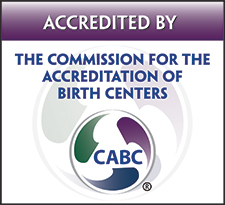October is Pregnancy and Infant Loss Awareness Month. While losses are common, they are deeply individual experiences. There are many different forms of loss including ectopic pregnancy, chemical pregnancy, blighted ovum, molar pregnancy, miscarriage, missed miscarriage, and stillbirth. About 10-20% of known pregnancies end in miscarriage, and approximately 80% of these losses occur in the first trimester. Despite this prevalence, pregnancy and infant loss is shrouded in secrecy, and these stories are rarely discussed openly. This leaves grieving families without the support they need and contributes to the problematic stigma surrounding these experiences. This week, I’m sharing my story of pregnancy loss. If you’re a loss parent too, please know that you are not alone.
What kind of loss did you have?
I’ve actually had many pregnancy losses. My first pregnancy was ectopic in 2017. I had an IUD in place at the time, so it was a completely unexpected event. Once I knew I was pregnant, I knew I needed care right away. A pregnancy that occurs with an IUD in place is more likely to be ectopic than a pregnancy in the general population. However, because IUDs prevent most pregnancies, people who use them have a lower risk of ectopic pregnancy than people who do not use any contraception. Working in reproductive health, I was aware of these risks.
My 2nd loss was a chemical pregnancy in October 2020. I had a faint positive pregnancy test that never got darker. Additionally, I had two missed miscarriages this year, one in February at 12 weeks and one in June at 8 weeks.
How did it start?
My ectopic started with intense cramps. I remember doubling over while grocery shopping, and I knew something was wrong. I took a pregnancy test (again…I work in reproductive health so that was my go-to). When it came back positive, I went to the hospital for an evaluation at the advice of my provider.
My chemical pregnancy started like any other pregnancy. We had been trying that month, so a few days before my expected period I took a test. After about a week, I started bleeding which confirmed my suspicion that I was miscarrying.
In February, at about 12 weeks, I had some spotting that lasted a few days. I wasn’t super worried about it, since I had spotted throughout my pregnancy with my daughter, but when it persisted with each wipe my concern grew. I reached out to my midwife who reassured me that loss at this point was very unlikely and the spotting was probably due to a harmless subchorionic hematoma. Still, my intuition told me something wasn’t right, so I went in for an ultrasound that afternoon. On the drive there I tried to reassure myself – this was my first ultrasound for that pregnancy, and I was going to get to see my baby’s heart beating. Alas, that was not what happened. At the ultrasound I was informed that my baby didn’t have a heartbeat and had stopped growing a few weeks earlier.
My miscarriage in June was a little different. I was nervous after my previous loss experiences, so I scheduled an early ultrasound at 7 weeks. When the baby was measuring too small, I knew this pregnancy would be a loss too. I had some bloodwork and a subsequent ultrasound a week later to confirm that my baby wouldn’t make it. Although she did have a heartbeat at my last ultrasound, it was far too slow for a viable pregnancy.
What kind of care did you receive?
My ectopic pregnancy was caught very early. At first, it was unclear whether it would survive, if I was miscarrying, or if it was ectopic. Eventually, blood tests and ultrasounds showed that it was ectopic, and I was given a shot of methotrexate at the hospital which ended the pregnancy.
I didn’t need any medical care for my chemical pregnancy. As is typical of this kind of loss, it was very straight forward.
My missed miscarriages both required more medical care. In February, after the ultrasound where I found out my baby was gone, I called my midwife. We decided that I would use a medication called misoprostol to induce a miscarriage. My body hadn’t started the process on its own and I didn’t want to wait any longer knowing my baby had died inside of me. The misoprostol caused intense cramps, a lot of bleeding, and clotting. I thought it had worked, but about a week later I started hemorrhaging at home. I went to the emergency room where I had a D&C.
In June I felt the same way as I did in February. When my body wasn’t miscarrying on its own, I didn’t want to wait any longer knowing the inevitable outcome. After that last ultrasound, I took misoprostolat home. I had cramping and bleeding and thought it had worked. An ultrasound a couple weeks later showed that there was still some pregnancy tissue remaining. I tried the misoprostol again, with a bit less cramping and bleeding than before. Again, I had faith that the medication had served its purpose. When I kept bleeding heavily after a few weeks, I reached out to my providers. A series of ultrasounds showed that my uterus still hadn’t released all of the pregnancy tissue, so I ended up having another D&C at the beginning of July.
Who was with you and how did they offer support?
My midwife answered all of my questions and stayed in close contact with me throughout my experiences. She talked to me candidly about what to expect and how to prepare, both practically and emotionally.
My partner was with me through all of it – every appointment, every test, and every breakdown. (Although during my miscarriages this year, he wasn’t allowed in the ultrasound rooms where I found out my babies were gone; a true cruelty of the pandemic.) Despite this support, he couldn’t understand it the way I did. These things were happening to my body and to babies that only I had ever known. One thing I was grateful for about my hemorrhage was that it forced him to really see it. In a visceral sense, I am glad we shared that experience because he saw the blood, the fear, and the pain in a more tangible way.
My mom and a close friend provided childcare for my toddler, which was huge. My employer encouraged me to take ample time off. This gave me space to both physically experience my miscarriage and time afterward to process what had happened.
My coworkers made me soup, brought me organic cotton pads, and gave me a tincture to help with cramps. My friends dropped off cozy pajamas, the softest sweater, and gift cards for my favorite take-out. These gifts really meant the world to me. Having others care for both me and my family was so important to helping me heal. I will remember these acts of kindness forever. I also talked about it a lot and continue to bring it up with my family, friends, and therapist.
How did you feel once it was over?
After my ectopic pregnancy, I grieved the loss of my first pregnancy, an experience I had dreamed of since I was little, it wasn’t quite my baby though. My chemical pregnancy was similar. Both were deeply wanted, but I moved through my grief pretty quickly.
My loss in February was really hard. I thought I was pretty safe at that point in the pregnancy and had shared my exciting news with most of my friends and family. My NIPT results had already come in. We knew our baby was a boy and had started thinking of names. I had envisioned his birth and saw the family of 4 we would become. After I lost him, I really wanted to get pregnant again right away. I think part of this was wanting to suppress the sadness I felt. I missed him and what we could have been together. I remember thinking that I couldn’t go through this again; I wouldn’t be able to handle it.
And then I did. I got pregnant again in April, and I was sure this was my baby. I bonded with her immediately. I knew she was a girl, and I would name her Delphine (although I kept that part to myself since my husband is VERY picky about names). Losing her was painful and the length of the process was grueling. The number of losses I’d had at that point made me feel like a failure as a mother. I started working with Buffalo IVF right away to try to find the cause of my losses. Although we didn’t find a reason for my recurrent miscarriages, the act of doing something proactive helped and the care I received there was full of compassion.
All of these experiences stay with me in everything I do. They are present in my marriage, my parenting, my friendships, and my work. Sometimes they live closer to the surface, and sometimes they are burrowed deep within. Pregnancy loss isn’t something that anyone “gets over” or “moves on from;” it becomes a part of us.
I think Angela Garbes put it best in Like a Mother: A Feminist Journey through the Science and Culture of Pregnancy: “I picture pregnancy loss as a primordial river rushing through me; it carries forces so big, they eclipse my imagination. It runs through my femoral artery and vena cava, through my spleen, my brain, and the chambers of my heart. At first, this force is strong like rapids, flooding everything. With time it slows, but it never goes away. It rearranges my cells like stones in a riverbed. It never stops running even after I can no longer see it or feel it.”
Author Mary Badame is the Quality Assurance Manager at Fika Midwifery and is a passionate advocate for midwife-led care, increased birth options, and better reproductive healthcare for everyone.




